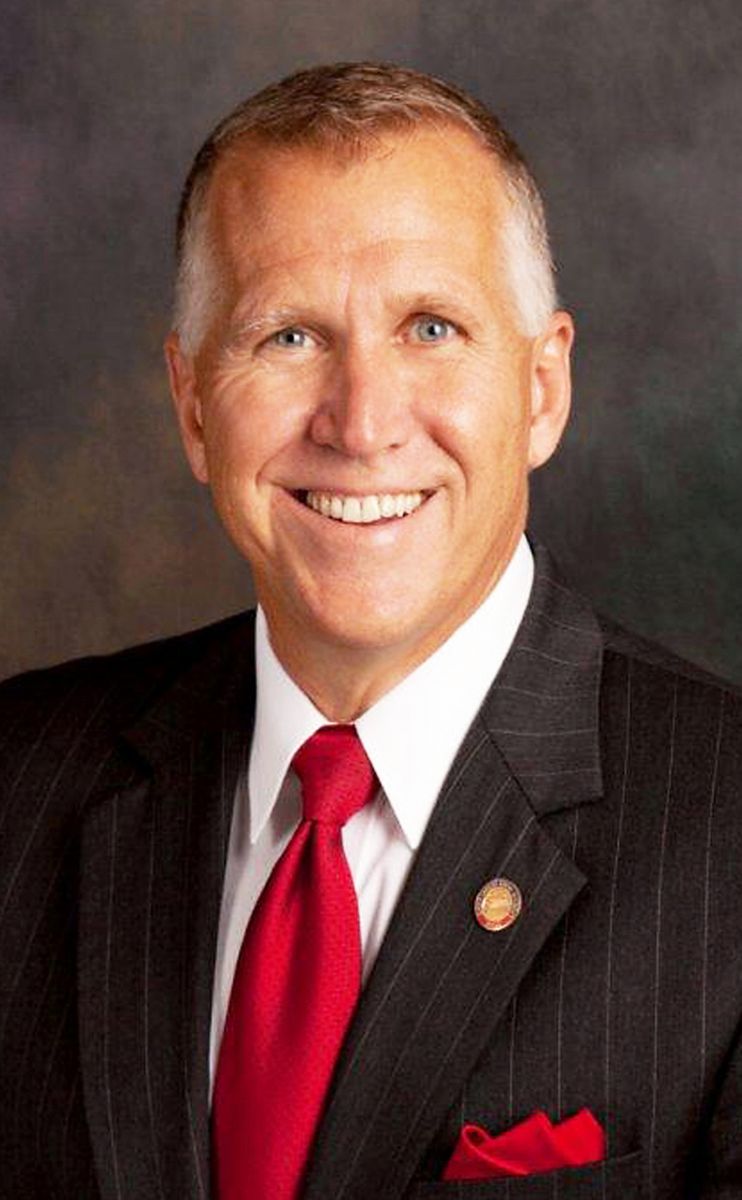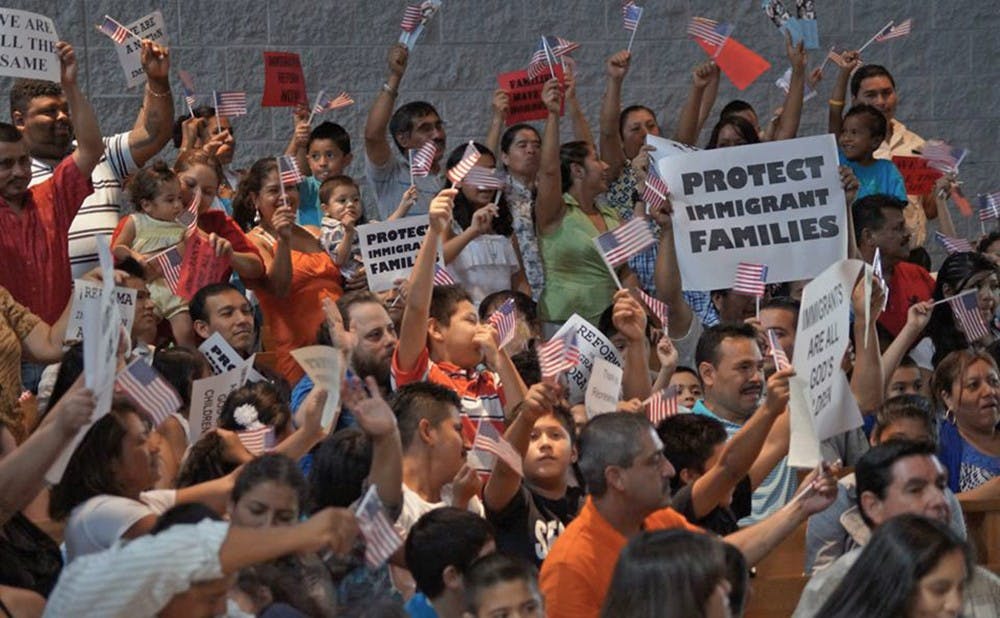Immigration remains a hot-button issue in the North Carolina Senate election, as Democratic incumbent Kay Hagan and Republican Thom Tillis face off today in what many have deemed a dead heat contest.
Hagan was one of five Democratic senators to lead a filibuster against the Development, Relief and Education for Alien Minors Act, which granted immigrant minors citizenship upon graduation from United States high schools. She has faced criticism for her immigration position not only from Tillis but also from left-leaning immigration activists—shown by Spanish-language billboard ads reading "Senator Hagan is no friend to immigrants" throughout the state. Tillis has also faced considerable opposition from the Latino community for his position on bipartisan reform. Because of the close nature of the race, some experts say this issue could serve as the tipping point to favor one candidate over the other.
Immigration, although not given as high a priority as issues such as the economy, could be "huge, especially among the Latino populations," said Mac McCorkle, associate professor of the practice of public policy.
Candidate platforms
Hagan was one of several Democratic senators who asked President Obama not to issue an executive order halting the deportation of undocumented immigrants. Immigration activists have been present at many of Hagan's campaigns, and tensions came to a peak when they interrupted a pair of rallies for Hagan last week, one of which was attended by former Secretary of State Hilary Clinton.

Hagan's press secretary, Chris Hayden, said she has been voting in Congress with good intentions. He pointed to her support of the bipartisan 2013 immigration reform bill—which includes provisions to increase border security and provides a path to citizenship for millions of illegal immigrants.
“Kay is the only candidate in this election who has voted for bipartisan immigration reform that will boost North Carolina's economy,” he said.
Tillis, who gives priority to directly securing borders and avoiding deportation of illegal residents before any other reform is addressed, has criticized Hagan for backing President Obama's immigration policies and voting against more fencing along the border three times since 2009. He also opposes a bill approved by Hagan that would give illegal immigrants amnesty in the United States.
Hayden said that Tillis has been unclear and biased in his immigration position throughout the elections thus far.
"This is another in a long line of issues where Kay is fighting for a common sense solution while Speaker Tillis plays politics and fights for the wrong priorities," Hayden said.
The Latino Press Secretary for the National GOP could not be reached for comment.
Role of Latino interest groups
McCorkle said despite the high-profile campaign against Hagan, she still enjoys the support of a number of Latino groups. One of these groups is the North Carolina Latino Coalition—a group comprising more 60 Latino leaders from across the state. They met with Hagan earlier this week to discuss several issues of immigration reform and were met with warm regards, said Ivan Parra, executive director of the North Carolina Latino Coalition.
"She both agreed and disagreed with our requests," Parra said. "We go by the commitment that she made to our members [in the meeting], and if she gets elected we will hold her accountable for her promises."

Some of these promises included Hagan's support of comprehensive immigration reform and her opposition of any future executive action taken by the president. Parra acknowledged the unpopularity of Hagan's past decisions in the Latino community, and said that as a community the Latino Coalition has decided to move past them.
"We understand that in the past she has taken stances on immigration that are not the ones that we agreed with, or the most popular," Parra said. "We spent a lot of time thinking about our support for her, so she better keep her promises."
McCorkle said that Hagan’s Senate voting and subsequent targeting by Latino organizations have nothing to do with the popularity that she has among the Latino community as a whole, who feel even more polarized by Republican Tillis.
“I think many Latino voters will swing to Hagan’s side because of the promises she’s made," McCorkle said. "She’s more open to the idea of immigration reform than Tillis is, which really isn't a surprise given party affiliations."
Sean Haugh—the Libertarian candidate in the Senate race who has played a key role in drawing polling votes from both the Republican and Democratic candidates— has a different policy on immigration. Despite the attention that his support of open borders and lenient immigration laws has drawn, McCorkle said that liberal policies alone won't draw many Latino voters his way.
"I think Haugh has a lot going for him, especially in terms of foreign policy and education," McCorkle said. "If anyone's going to vote for him, it'll be for these reasons and not for his abstract views on immigration."
Latino presence at the polls
Despite the candidates' vying for Latino voters through the issue of immigration, Latinos still make up a small portion of voters in midterm elections. According to the National Council of La Raza, just three out of ten eligible Latino voters cast a ballot in the 2010 midterm elections. McCorkle said that Latino turnout may not be as much as the candidates hope, especially for a midterm election.
"The Latino community in North Carolina shows astounding numbers at presidential elections, especially last year, but historically has been largely absent in state elections," he said. "But the community has a lot of potential in terms of the final vote."

Parra said that the North Carolina Latino Coalition has fought the problem of low Latino voter turnout through statewide voter registration campaigns that have unfolded in three phases—registration, early voting and voting on Election Day. Parra said the NCLC deems the campaign a success, noting that many Latino citizens have pledged to be active in voting and quoting a NCLR poll indicating that more than 115,000 Latinos are registered to vote in North Carolina, and 79 percent indicate they will vote on Election Day.
"People are saying Latinos won't vote because they're unhappy with the candidates, but the reality is the opposite," Parra said. "We're completely sure that the Latino community will be present at polls."
Get The Chronicle straight to your inbox
Signup for our weekly newsletter. Cancel at any time.

